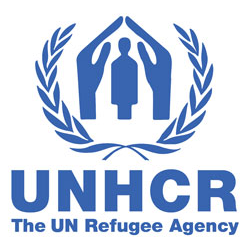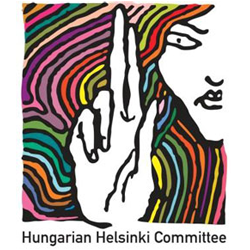Main points
- The specific reasons for establishing a parallel system for the protection of Palestinian refugees
- Complementarity vs. risk of duplication between different actors in the international protection sphere
- Legitimacy, independence and impartiality
- Scarcity of donor resources; and their most effective use
Main debates
- What is the interplay between the mandate of UNRWA and that of UNHCR with respect to Palestinian refugees worldwide?
- How have the challenges facing UNRWA evolved over time?
- What if a protected person voluntarily leaves or is forced to leave the UNRWA territory?
- How can civil society and particularly non-governmental organisations complement and strengthen the actions of states and international organsiations in refugee protection activities?
- What is the role of NGOs as (1) contributors to promoting high legal standards, (2) service providers and/or (3) monitors in the international protection system?
UN documents
- United Nations General Assembly, Resolution 302(IV) on Assistance to Palestinian Refugees, 8 December 1949.
- UNHCR, Convention Relating to the Status of Refugees, 28 July 1951, 189 U.N.T.S. 150; see in particular Article 1(D).
- UNHCR, ’Global Report 2012’, chapter on ’Working in partnership’.
- UNHCR, NGO Statement to General Debate, 64th session of the Executive Committee (EXCOM) of the High Commissioner’s Programme, 30 September-4 October 2013.
Cases
- Abed El Karem El-Kott and Others v Bevándorlási és Állampolgársági Hivatal, C-364/11, Court of Justice of the European Union, 19 December 2012.
- Nawras Bolbol v Bevándorlási és Állampolgársági Hivatal, Case C‑31/09, Court of Justice of the European Union, 17 June 2010.
Readings
Core
- G. Goodwin-Gill and J. McAdam, The Refugee in International Law, 3rd edn,(Oxford: Oxford University Press, 2007), pp. 441–446. [G. Goodwin-Gill, The Refugee in International Law (Oxford: Oxford University Press, 1996), pp. 222–230].
- T. Bartholomeusz, ‘The Mandate of UNRWA at Sixty’ Refugee Survey Quarterly, vol. 28. vol. 2-3 (2010), pp. 452-74.
- T. Clark, ‘The NGO role in supervising the application of the Convention and beyond’ in J. Simeon (ed), The UNHCR and the supervision of international refugee law (Cambridge: Cambridge University Press, 2013), Chapter 15, pp. 302-310.
- O. Aarakaki, ‘Supervision of the Refugee Convention: non-state actors’ in J. Simeon (ed), The UNHCR and the supervision of international refugee law, (Cambridge: Cambridge University Press, 2013), Chapter 14, pp. 286-301.
- N. Kelly, ‘International Refugee Protection Challenges and Opportunities’, International Journal of Refugee Law, vol. 19, no. 3 (October 2007), pp. 432–439.
Extended
- E. Ferris, The role of Non-governmental Organisations in the International Refugee, in N. Steiner, M. Gibney, G. Loeshcer (eds) Problems of Protection The UNHCR, Refugees, and Human Rights (London Routledge, 2013), pp. 117-137.
- J. Lindsey, ’Fixing UNRWA: Repairing the UN's Troubled System of Aid to Palestinian Refugees’, Policy Focus no. 91 (Washington: Washington Institute, 2009).
- C. Phuong, ‘Improving United Nations Response to Crises of Internal Displacement’, International Journal of Refugee Law, vol. 13, no. 4 (October 2001), pp. 491–517.
- S. Petcharamamesree, ’International protection and public accountability: the roles of civil society’ in J. Simeon (ed), The UNHCR and the supervision of international refugee law (Cambridge: Cambridge University Press, 2013), Chapter 13, pp. 275-285.
- W. Kälin, ‘Supervising the 1951 Convention on the Status of Refugees: Art. 35 and Beyond’, in E. Feller, V. Türk, and F. Nicholson (eds), Refugee Protection in International Law: UNHCR’s Global Consultations on International Protection (Cambridge: Cambridge University Press, 2003), pp. 613–666.
Editor’s Note
Multiple actors, in addition to States and UNHCR, are today involved in crucial ways in providing assistance to and facilitating the protection of refugees in many situations. This section limits its focus to two specific areas: firstly, to the UN Relief and Works Agency (UNRWA), mandated to assist Palestinian refugees in the organisation’s areas of operation; and secondly, non-governmental organisations (NGOs) as a category. It is nevertheless acknowledged that other UN and international organisations, including the International Committee of the Red Cross (ICRC) and International Organisation for Migration (IOM) as well as other actors at national level in many countries worldwide, play a significant role in support of the assistance and protection of displaced persons.






